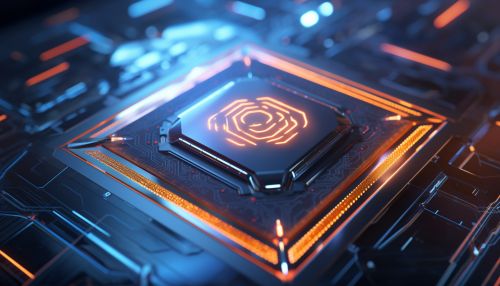Quantum Artificial Intelligence
Introduction
Quantum Artificial Intelligence (QAI) is an interdisciplinary field that combines quantum computing and artificial intelligence. It aims to leverage the principles of quantum mechanics to improve the computational and learning efficiencies of AI algorithms. This field is still in its nascent stages, but it holds the potential to revolutionize various sectors, including healthcare, finance, and cybersecurity.


Quantum Computing
Quantum computing is a type of computation that utilizes quantum bits, or qubits, instead of the traditional binary bits used in classical computing. Qubits can exist in multiple states at once, thanks to a quantum phenomenon known as superposition. This property allows quantum computers to process a vast number of possibilities simultaneously, potentially solving certain problems much more quickly than classical computers.
Another essential principle of quantum computing is quantum entanglement, which allows qubits that are entangled to be in a superposition of states. This means the state of one qubit can instantly influence the state of another, no matter the distance between them. This property is used to link qubits in a quantum computer, enabling the simultaneous processing of complex computations.
Artificial Intelligence
Artificial intelligence refers to the simulation of human intelligence processes by machines, especially computer systems. These processes include learning, reasoning, problem-solving, perception, and language understanding. AI can be classified into two main types: narrow AI, which is designed to perform a narrow task, and artificial general intelligence (AGI), which is an AI system with generalized human cognitive abilities.
AI algorithms, particularly those in machine learning, work by building a mathematical model based on sample data, known as "training data," in order to make predictions or decisions without being explicitly programmed to perform the task. Machine learning algorithms are used in a wide range of applications, including email filtering, detection of network intruders, and computer vision.
Quantum Artificial Intelligence
Quantum artificial intelligence is the application of quantum computing to AI. It uses the principles of quantum mechanics to improve the efficiency and speed of AI algorithms. QAI has the potential to significantly enhance machine learning, enabling computers to sift through vast amounts of data and find patterns much faster than classical computers.
One of the main areas of research in QAI is the development of quantum algorithms for machine learning. These algorithms can potentially solve complex problems faster and more efficiently than classical algorithms. For example, the quantum support vector machine is a quantum version of a popular machine learning algorithm used for classification and regression analysis.
Potential Applications
The potential applications of quantum artificial intelligence are vast and varied. In healthcare, QAI could be used to analyze large amounts of medical data to identify patterns that could lead to early diagnosis of diseases. In finance, it could be used for high-frequency trading, portfolio optimization, and risk analysis. In cybersecurity, QAI could help in the detection of cyber threats and the development of secure communication systems.
However, it's important to note that these applications are largely theoretical at this point. Quantum computers capable of running complex QAI algorithms are still in the early stages of development, and there are numerous technical challenges that need to be overcome before these applications can be realized.
Challenges and Future Directions
Despite the potential of quantum artificial intelligence, there are several challenges that need to be addressed. One of the main challenges is the development of quantum computers that are stable and powerful enough to run QAI algorithms. Quantum computers are currently prone to errors due to environmental interference, a problem known as quantum decoherence.
Another challenge is the lack of a theoretical framework for QAI. While there are some quantum machine learning algorithms, there is still a need for a comprehensive theory that can guide the development of new algorithms and applications.
Despite these challenges, the field of quantum artificial intelligence is rapidly advancing, and there is a growing interest in the potential applications of QAI. With continued research and development, QAI could revolutionize various sectors and lead to the development of more efficient and powerful AI systems.
